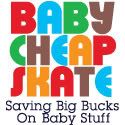I’m sure that most of you have read Slate’s article by now, so I won’t bore you with recapping, however I will bore you with my personal reactions.
My first feelings on this were best described as, oh just another crock of shit, right wing sponsored article. As I continued to read however, I thought about it from many angles. Having found out I was adopted only a year or so ago, I understand the plight of a person who wants to figure out their connection to the world. While I found my biological mother and have closure on that part of my lineage, I still wonder about my biological father. It isn’t a wonder that makes me feel disconnected from the world, just a wonder that causes me to think wow, there is someone out there that gave me this logical personality, dimples, and short stature- I wonder what he would be like to chat with at dinner? While I was on the frantic search to figure out if I “fit” better into my genetic family, I had angry feelings of “how dare I be deprived of information”, “I can’t believe that people don’t protect their genetics more”, “Adoption is wrong, genetics should be kept together”. I think this is far more a reflection of my mother never telling me the truth, never sharing what she knew and finding out on accident, more than my real feelings. I have nothing in common with my biological mother, I’m not more like her, she wouldn’t have been a good mother- and frankly, as crazy as I think my mother is-I’m so glad she raised me. My genetic mother gave my mother a gift and in return, my mother raised me to be a smart, confidant, self reliant person. I have almost a full picture and no longer feel any anger. The surveys I took regarding adoption when I found out about my adoption versus now would reflect very different results, and that just takes into account a year’s time.
This brings me to my feelings on sperm donation, egg donation, gamete adoption, etc. Based on my adoption experience, I absolutely know that my son will feel deprived of something at some point. I know that he will wonder where his
In conclusion, I can’t debase the feelings of those donor survey respondents, but I can say after I found out I was adopted, I sought out every survey I could to let the world know how pissed off I was. In my more calm state, I haven’t responded to any surveys, but if I did, the results would be very different. Do I think genetic connection is important to children- yes, so sperm donation, egg donation, adoption, etc all matter. However, I think when these things are open and honestly talked about within the family structure and not clouded with shame and secrecy, children fair better emotionally.
So there you have it, my 8th grade quality essay on the article.





5 comments:
Thank you for putting that out there. I've felt such a pit in my stomach today about the study (funded by a very conservative group with a stated agenda of preserving "morals" and marriage). not everyone will read the fine print and, just like last week's positive study, people will take it at face value and add it to the compendium of knowledge they have about kids of gay individuals (conceived through donors or not). Your adoption perspective is really valuable and has eased my mind somewhat. Thank you.
A really excellent post, and it sums up so much of how I feel about it, too. It's a huge part of why we went for ID-Release, as well, when when we started out on this journey, I was adamantly AGAINST our children being able to find out who their donors were. (And, if things had been ideal, I would've rather continued to use our KD, but they weren't, and we chose to use ID-Release instead of a KD that we don't know, and couldn't gauge how they may or may not be down the line.)
The report has really upset me, and the blog posts on the site of the group that funded it even more so. (They've been linked to and talked about a lot on the DSR e-mail group recently.) But all we can do is the best we can, and I really do believe that so much of the anger and upset is at being deceived, and being denied the information as to their past, as opposed to the simple fact that they're due to donation.
Merideth: I had been thinking about it non stop since reading it. I'm glad that it helped you- just getting it in print calmed me down.
N: I think id release is such a good thing. The donor we picked didn't offer it, but we've kept ever detail about him in a folder for Andrew on day.
What does DSR stand for?
So I notice that we have not seen any baby belly pics since February. How about and update? Shall we beg Janet?
I have to say: that report upset me much less after I read the data, not just the conclusions. The data does not, in my view anyway, support the conclusions or much else in the report. Bear in mind that this way not put together by a neutral organization. These are people who provide speakers on why gay marriage is a danger, etc.
The *data* is surprisingly not so bad at all. In nearly every case, the donor-conceived adults interviewed support exactly the positions you'd "want" them too -- that is, a good-sized majority (75%-ish) agree with statements like "everyone has a right to have a child" and so on (not feeling like looking at the report again, but you get the idea). Donor-conceived adults agree with the "donation" side of every point at rates much higher than the other groups -- adopted adults, adults conceived and raised by genetic parents -- suggesting that being donor-conceived has not left them bitter and broken but rather more open-minded about the ways they got here.
How they got from their stated data to their conclusions I do not understand. Oh, unless they just figured no one would read the data and so they could just say whatever fit their ideology.... Great publicity, not so impressive science.
I don't mean to suggest that there aren't real issues about donor-conception or that we should be afraid to talk about/deal with them, but I'm not willing to take this report as an indictment.
Post a Comment